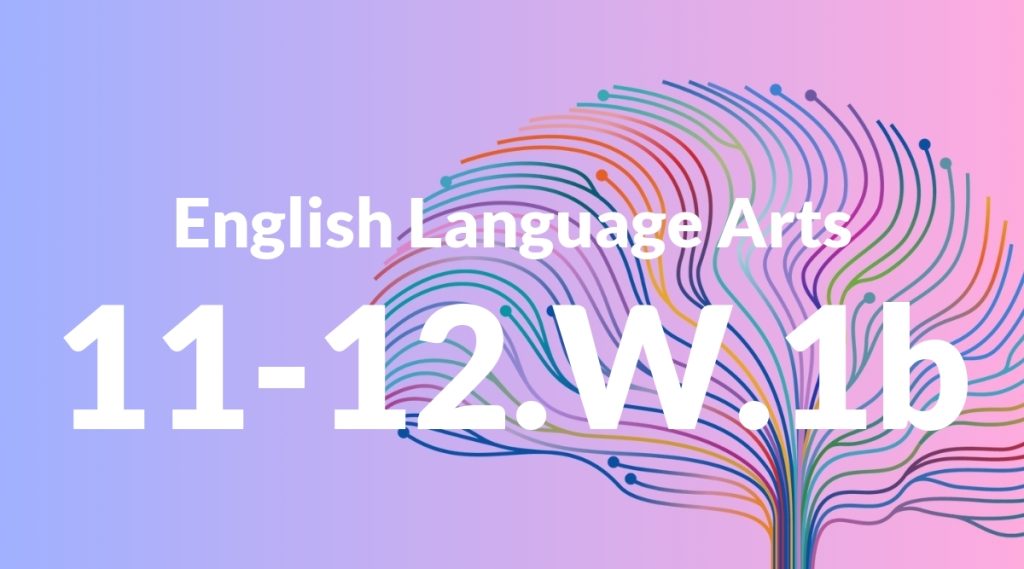Standard: 11-12.W.1b – Develop claim(s) and counterclaims fairly and thoroughly, supplying the most relevant evidence for each while pointing out the strengths and limitations of both in a manner that anticipates the audience’s knowledge level, concerns, values, and possible biases.
Grade level: Grade 11-12
Subject: English Language Arts
Domain: Writing
Teacher Overview
This standard focuses on developing students’ abilities to construct well-rounded arguments by considering and addressing multiple perspectives. It is crucial as it enhances critical thinking, persuasive writing, and the ability to engage in civil discourse. Students should already be comfortable with basic argument structures and have experience in identifying and using evidence in their writing.
Mastering this standard prepares students for advanced argumentative writing and critical analysis in both academic and real-world contexts.
Common Misconception 1
A common misconception is that presenting only one’s own claims is enough to persuade an audience. This is incorrect because it fails to address potential objections and does not demonstrate a thorough understanding of the topic.
Intervention 1
To address this, implement structured debate activities where students must prepare and present both claims and counterclaims.
Common Misconception 2
Another misconception is that all pieces of evidence are equally relevant. This is not true; stronger, more relevant evidence should be prioritized to make a more compelling argument.
Intervention 2
Use evidence ranking exercises where students evaluate and sort evidence based on its relevance and strength to the argument.
Prerequisite Knowledge
Students should have a foundational understanding of constructing basic arguments, identifying and evaluating evidence, and recognizing different perspectives in a discussion or text.
Subsequent Knowledge
After mastering this standard, students will be able to engage in more complex argumentative writing, including research-based arguments and detailed critical analyses of texts, and apply these skills in real-world scenarios such as debates and professional writing.
Instructional Activities
- Structured debates
- Evidence ranking exercises
- Peer review sessions focused on evaluating arguments
- Writing workshops for persuasive essays
- Analyzing and critiquing professional arguments in articles and speeches




